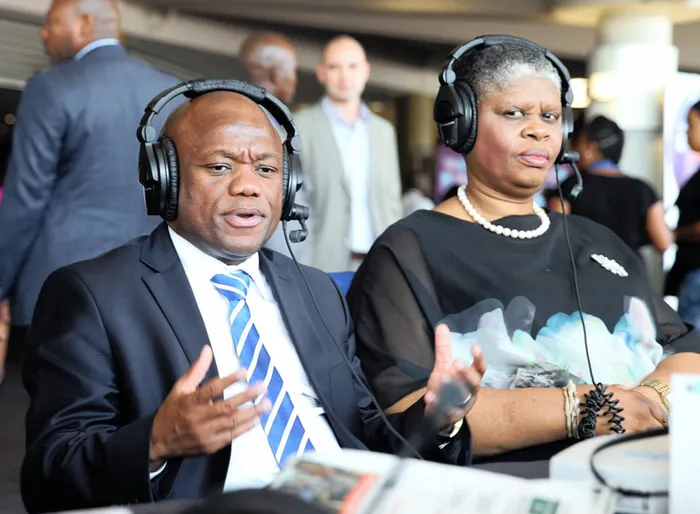‘Commitment needed to transform SA’s economy’

The MEC for Economic Development and Tourism, Sihle Zikalala, and eThekwini mayor Zandile Gumede at the Durban ICC on the first day of the Essence Festival. Both spoke on the need and potential for large-scale transformation of the economy. Picture: Patrick Mtolo The MEC for Economic Development and Tourism, Sihle Zikalala, and eThekwini mayor Zandile Gumede at the Durban ICC on the first day of the Essence Festival. Both spoke on the need and potential for large-scale transformation of the economy. Picture: Patrick Mtolo
Durban - Transforming the country’s economy - which remains “predominantly in white hands reflecting the patterns designed by the apartheid system” - will take political commitment, legislative frameworks and financial support.
And this, says eThekwini mayor Zandile Gumede, could happen with the help of “black industrialists”, or black people directly involved in the origin, creation, management and operation of industrial enterprises.
“We want to see more black people entering the manufacturing space. We need to move away from being consumers to being producers. This will revive our local economies and create job opportunities.”
She was speaking yesterday at the Durban ICC at the Essence Festival’s Durban Business Fair, the theme of which was “promoting radical economic transformation agenda”.
Durban’s hosting of the event is a continental first, spurred on by the city’s partnership with New Orleans in the US, and was set up to facilitate cultural and business knowledge exchanges.
Gumede said 5 000 jobs had been created through hosting the festival and R100 million had been spent in the city, which she expected would grow to R250 million because of the influx expected from the publicity generated by the event.
Delegations from the US, Nigeria and Mozambique also joined the discussions.
The MEC for Economic Development, Tourism and Environmental Affairs, Sihle Zikalala, likened South Africa post-apartheid to post-WWII Germany.
“At the end of the Second World War, Germany emerged as one of the worst-affected countries in the world. Industrial output was down by a third, but just 30 years later it registered a miraculous economic recovery.”
By 1989, he said, Germany was the third biggest economy after Japan and the US. This change was brought about as a result of their own “radical economic plan”
“They emphasised anti-monopoly and anti-cartel notions, because they knew that it did not assist in the distribution of the economy.”
Post-1994, he said, Africans in general, and blacks in particular, were on the periphery of the economy.
“Interventions seeking to change this, like the reconstruction and development plan (RDP); growth, employment and re-distribution plan (GEAR); and the National Development Programme and its vision for 2030 were implemented.
“But despite these interventions, two economies persist.”
He said the government had succeeded in ensuring legislative frameworks allowing for economic growth and distribution, but the pace was too slow.
KwaZulu-Natal, he said, with the focus on its many projects, such as those based at the Dube Tradeport and at the Durban Point Waterfront, hoped to see a 5% economic growth by 2020.
City manager Sibusiso Sithole said the municipality aimed to make Durban Africa’s most liveable city by 2030.
“Globally, more than 80% of the economy is generated by cities, despite them accounting for only 60% of the population.”
He talked in detail about the city’s many projects, including the Warwick Precinct, Centrum Government Project and the Cornubia Integrated Development.
The conference continues today.
THE MERCURY